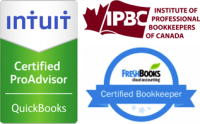The current minimum wage in BC as of June 1st, 2018 is $12.65 and that number is expected to rise steadily in the coming years. As small business owners in one of Canada’s most expensive cities, it should be no surprise that minimum wages are increasing. Many small business owners are already paying well above minimum wage to align with the cities livable wage of $20.91/hour and retain good talent.
Minimum wage increases are often met with mixed reviews from business owners. While some feel it will fuel the economy as employees will have more money to spend and create happier workplaces, others feel it will have a crippling impact on small business owners and their bottom line.
No matter what your point of view is on minimum wage increases the fact of the matter is – they are coming whether you like them or not. Here are 3 ways that you can make sure you are prepared for the increase.
1. Streamline Your Business
Inefficiencies, products and services with low-profit margins, and outdated systems tend to stick around longer than they should when a business is thriving. When a minimum wage increase hits and payroll taxes and accounting fees go up the reactionary approach for a lot of business owners is to start thinking about employee cuts because at face value higher wages appear to be the problem.
Rather than hastily cutting staff or treating your employees differently now that they cost more we recommend turning your focus on your business and getting real with yourself. Ask yourself when was the last time you shopped around to ensure your insurance policy, bank account fees etc. were the best price? What parts of your business could be automated with the right technology? Which product or service lines have small margins and should be cut? What systems can be upgraded?
Doing a thorough audit of your business, reviewing your profit margins and investing in better systems can save you thousands long term. Helping you stay on budget when minimum wage increases are announced.
2. Reduce Your Hours
It’s not always ideal but it is better than laying off good staff. If you have a storefront or provide services a lot of overhead can be reduced if you are smart about your operating hours and your scheduling. If your sales are low on a Tuesday and only barely cover your operating costs then maybe there is no need to be open that day. Or if you notice that most of the work is completed from 9am – 3pm and from 3pm – 5pm nothing gets done, reduce your teams daily hours to 9am – 3pm until you can ramp back up.
While reduced hours isn’t ideal for your existing staff it’s much better than no hours.
3. Increase Prices
While this isn’t always ideal it’s a very viable option to manage a minimum wage increase. With inflation prices can’t be expected to stay the same forever and when minimum wages increase it’s common for the cost of goods to increase with them. Talk to your bookkeeper to determine what the deficit is with the wage increase then look at how you can recoup that with incremental price increases across your products or services. So long as you continue to ensure your level of service remains high most customers will stay loyal.
A lot of small business owners in Vancouver are already paying above minimum wage to ensure they can retain talent so when wage increases are implemented the impact is minimal. If you happen to find yourself in a tight situation when the next increase is announced talk to your bookkeeper or accountant and look for ways to trim the fat from your business that are win/win for both you and your employees.



